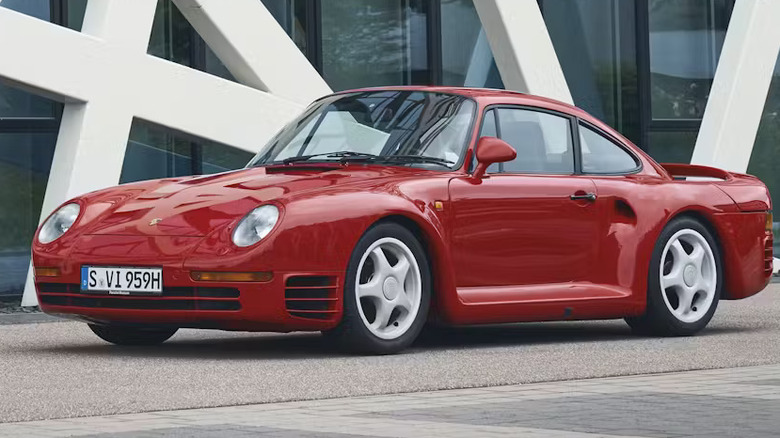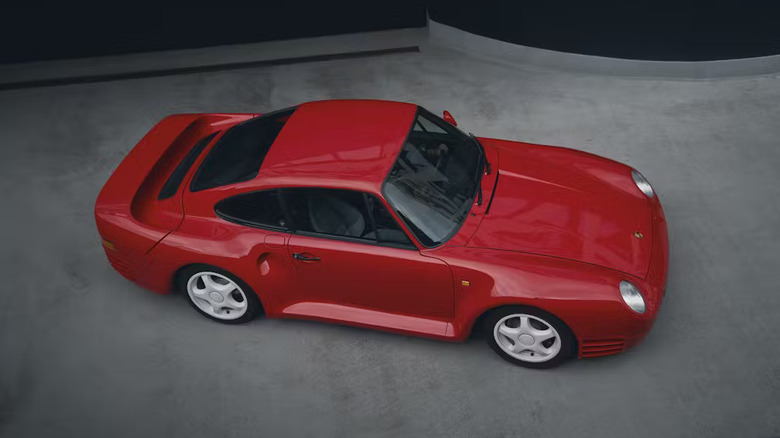How Fast Is The Porsche 959? A Look At Its Top Speed & Acceleration Times
It's not hyperbole to say that the Porsche 959 is one of the best-looking Porsches and most lusted-after vehicles ever produced by the German automaker. It might appear to be a standard 911 from a distance, but there's no mistaking the two up close. Based on the 911 platform and built with Group B rally in mind, there are all sorts of differences between the 959 and a standard 911. For starters, the 959's extremely limited initial production run of just 292 units in the late 1980s made it difficult to get your hands on one — and that rarity paid off for owners. At auction, two different 959s have sold for over $2 million, with others going for between $1.4 million and $1.8 million in the last two years.
More than just the rarity, though, the 959's unique powertrain, its advanced technology, and its sleek exterior all help set it apart. Standard Porsche 911s during that generation were putting out 217 horsepower, with Turbo models producing 282 hp. The 959 more than doubled the standard model's power and blew even the 911 Turbo out of the water. The 959's twin-turbocharged engine used sequential power delivery, with one turbo providing power low in the rev range, and the other giving a big boost as the RPMs climbed. The sleek integrated rear spoiler, the massive fenders, and the body panel cutouts that flowed air to the engine — all were part of the 959's appeal, but just how fast was it?
Top speed runs are quick, real quick
The 959 was powered by a detuned racing engine, sourced from the Porsche 962 and 956. The engine was a twin-turbocharged 2.8-liter (2,849 cc) flat-six that made 444 horsepower and 369 lb-ft of torque. While those might not seem like wildly large numbers by today's standards, they were certainly impressive almost 40 years ago. According to Porsche, the top speed of the 959 is almost 320 kilometers per hour (199 mph). That was enough to make it the world's fastest production car at the time, and still one of the fastest cars on the road today.
Part of the 959's ability to accelerate and travel so quickly is, of course, the engine. Getting it off the line, however, has a lot to do with the all-wheel drive system getting power to the ground through all four wheels and rocketing the 959 towards the horizon. Porsche's numbers have the 959 going from zero to 100 kilometers per hour (62 mph) in 3.7 seconds – a time that any average sports car would be happy with today. When Car and Driver tested the 959 back in the late 1980s, their instruments measured a zero-to-60 mph time of just 3.6 seconds.

